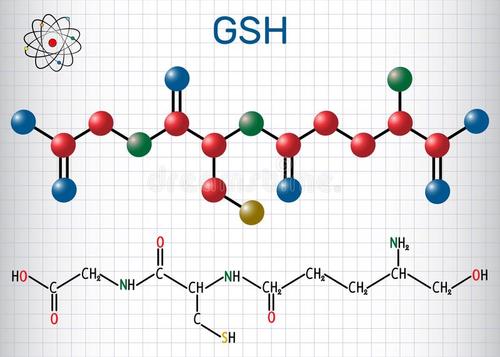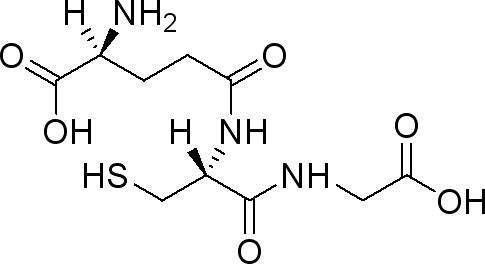Benefits and existence form of glutathione
Glutathione is an antioxidant produced within cells. It is mainly composed of three amino acids: glutamine, glycine and cysteine. Levels of glutathione in the body can be reduced by many factors, including poor nutrition, environmental toxins, and stress. Its levels also decline with age. In addition to being naturally produced by the body, glutathione can be injected intravenously, locally, or as an inhalant. It is also available as an oral supplement in capsule and liquid form. However, oral administration is not as effective as intravenous administration, and here are the benefits of glutathione.
1. Reduce oxidative stress
Oxidative stress occurs when there is an imbalance between the production of free radicals and the body's ability to fight them. High levels of oxidative stress can be a precursor to a variety of diseases.These include diabetes, cancer and rheumatoid arthritis. Glutathione helps delay the effects of oxidative stress, which in turn may reduce disease. Studies have also shown that elevated glutathione levels increase the antioxidant levels and the ability of cancer cells to resist oxidative stress.

2. It can improve psoriasis
A small study has shown that whey protein improves psoriasis when taken orally, with or without additional treatment. Whey protein has been shown to increase glutathione levels.
3. Reduce cell damage in alcoholic and non-alcoholic fatty liver disease
Cell death in the liver may be exacerbated by a lack of antioxidants, including glutathione. This can lead to fatty liver disease in those who abuse alcohol and those who do not. Glutathione has been shown to improve blood protein, enzyme and bilirubin levels in patients with alcoholic and non-alcoholic chronic fatty liver disease. One study reported that glutathione is most effective when given intravenously at high doses to patients with fatty liver disease.
4. Improve insulin resistance in the elderly
As people age, they produce less and less glutathione. Researchers at the Baylor School of Medicine combined animal and human studies to explore the role of glutathione in weight management and insulin resistance in older adults. The findings suggest that low levels of tathione are associated with less fat burning and higher rates of fat storage in the body.
Older subjects added cysteine and glycine to their diets to increase glutathione levels, which spiked over two weeks, improving insulin resistance and fat burning.
5. Increase mobility in patients with peripheral arterial disease
Peripheral artery disease occurs when a peripheral artery becomes clogged with plaque. It most often occurs in the legs. One study reported that glutathione improved blood circulation and improved the walking ability of study participants, allowing them to walk painless over longer distances.
6. Reduce symptoms of Parkinson's disease
Parkinson's disease affects the central nervous system and is characterized by symptoms such as tremors. There is currently no cure. An earlier study documented the positive effects of intravenous glutathione on symptoms such as tremors and stiffness. While more research is needed, this case report suggests that glutathione may help reduce symptoms and improve patients' quality of life.
7. It helps fight autoimmune diseases
Chronic inflammation caused by autoimmune diseases can increase oxidative stress. These include rheumatoid arthritis, celiac disease and lupus. According to one reliable study, glutathione helps reduce oxidative stress by stimulating or lowering the body's immune response. Autoimmune diseases attack the mitochondria in specific cells. Glutathione protects cell mitochondria by eliminating free radicals.
8. It can reduce oxidative damage in children with autism
Several studies, including a clinical trial published in the Medical Science Monitor, have shown higher levels of oxidative damage and lower levels of glutathione in the brains of children with autism. This increases the sensitivity of autistic children to nerve damage caused by substances such as mercury. The eight-week clinical trial used oral or percutaneous glutathione in children aged 3 to 13 years. Changes in autism symptoms were not assessed as part of the study, but children in both groups showed improvements in cysteine, plasma sulfate, and whole blood glutathione levels.
9. It can reduce the effects of uncontrolled diabetes
Chronic hyperglycemia is associated with a decrease in glutathione. This can lead to oxidative stress and tissue damage. One study found that adding cysteine and glycine to the diet increased glutathione levels. It also reduces oxidative stress and damage in people with diabetes, despite their high blood sugar levels.
Glutathione contains sulfur molecules, which may be why foods high in sulfur help promote its natural production in the body. These foods include: cruciferous vegetables such as broccoli, cauliflower, Brussels sprouts, cabbage, scallions, garlic, and Onions. Eggs, nuts, legumes, lean proteins like fish and chicken.

Omizzur Biotech custom peptide synthesis business includes: drug peptides, clinical peptides, stapled peptides, starch peptides, aldehydes peptides, cyclic peptides, disulfide bridging peptides, transmembrane peptides, various antimicrobial peptides, cosmetic peptides, phosphorylated peptides, PEG peptides, BSA and KLH coupling antigen peptides, peptide impurity synthesis,If you need to know more about the custom synthesis of peptides, please visit the official website of www.omizzur.com ,enjoy your consultation
Copyright © 2020 Omizzur Inc | Terms & Conditions | Privacy Notice | Sitemap